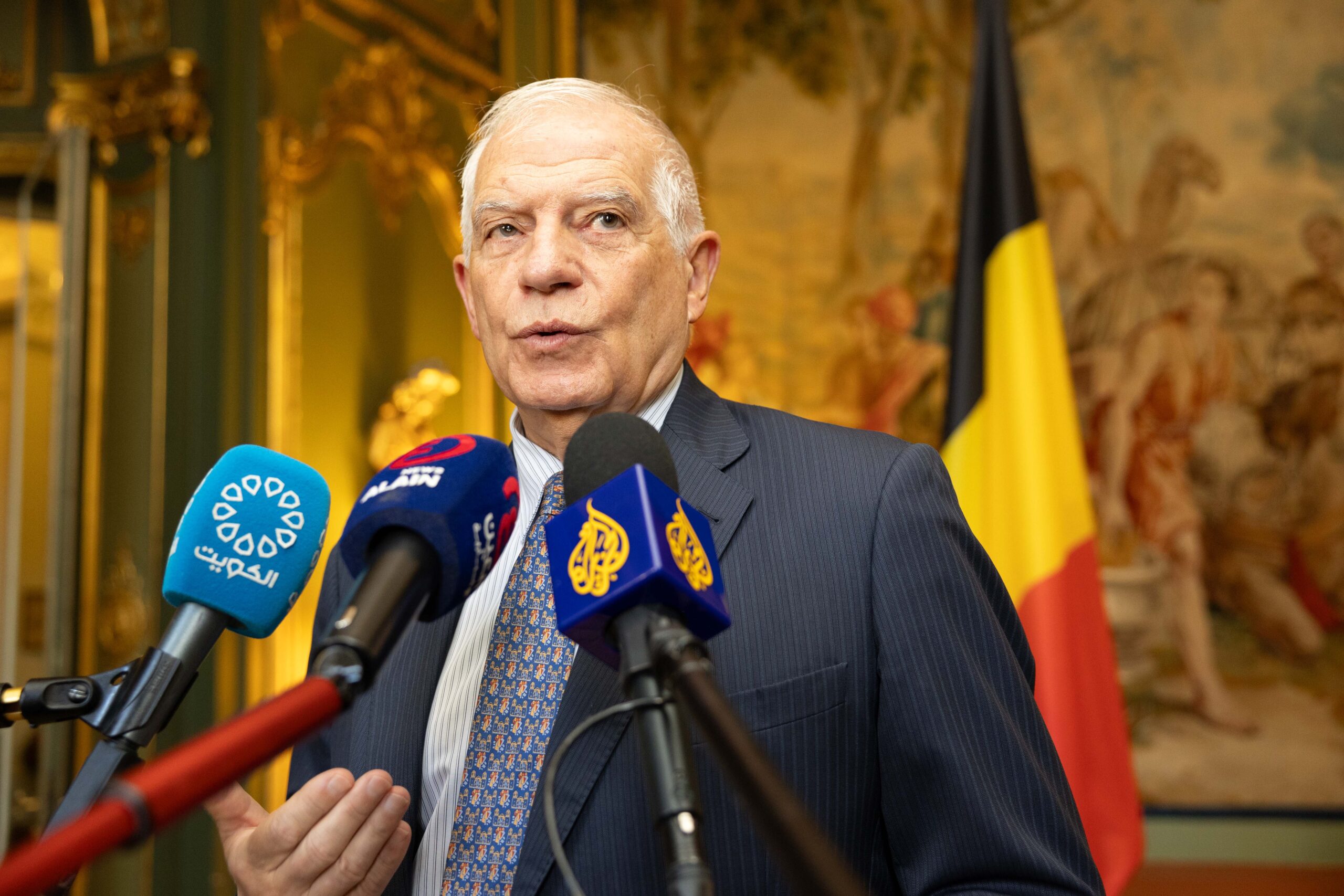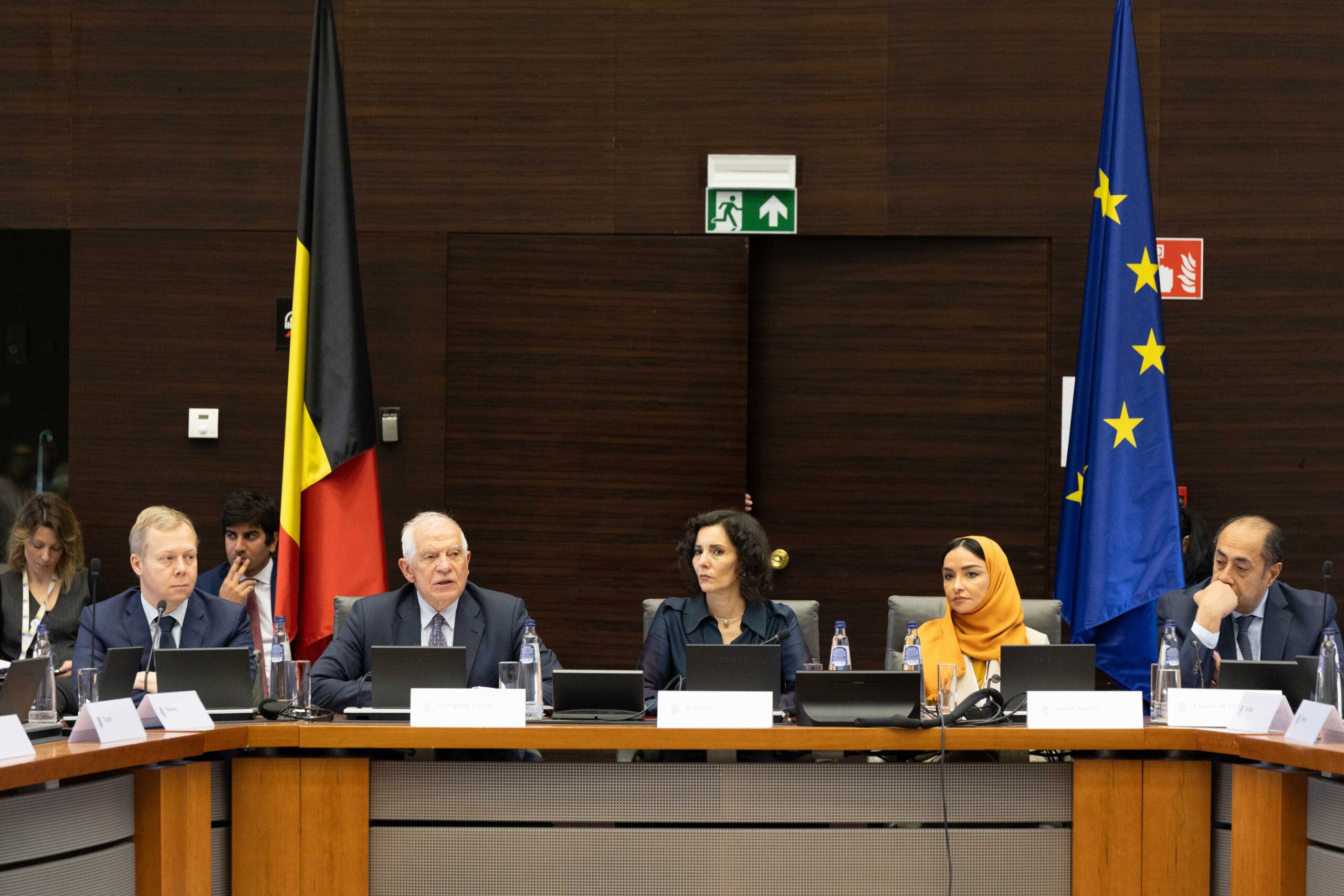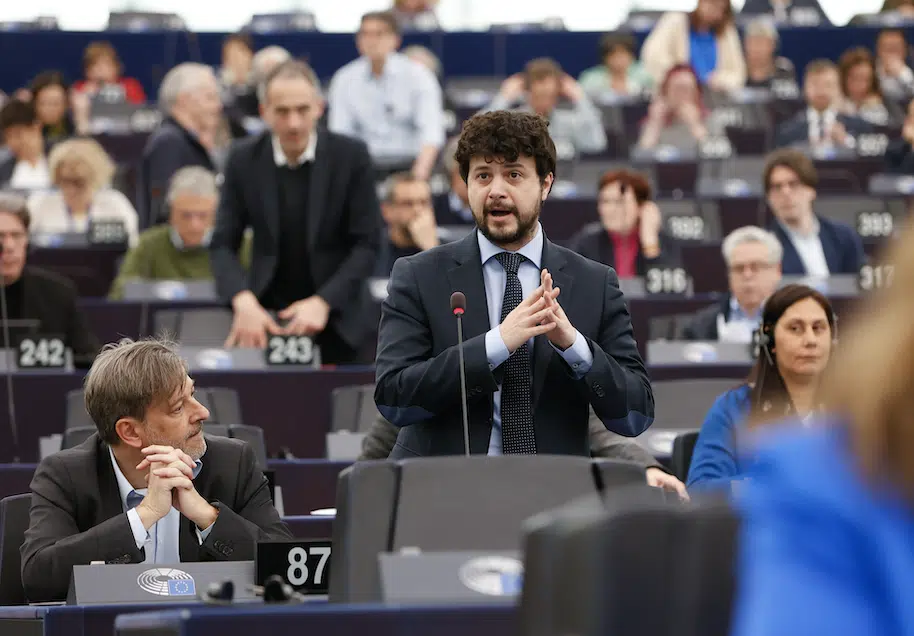Brussels – One hundred representatives of states and international organizations gathered for the second meeting of the Global Alliance for the Implementation of the Two-State Solution in the Middle East. Hosts from the EU and Belgium. It is the last day on the job of the High Representative for Foreign Affairs, Josep Borrell, who will leave the desk tomorrow to former Estonian Prime Minister Kaja Kallas. “I did not want to leave my job before holding this meeting,” he said, reflecting on his efforts—often alone—to find a way out of the conflict between Israel and Hamas in Gaza.
In a lengthy speech upon his arrival at Palais d’Egmont in downtown Brussels, Borrell spoke with more sincerity than ever before, knowing that as of tomorrow, he will no longer have to clash with 27 national governments that have been dragging their feet for the past year on Israel’s devastating offensive, first in Gaza and then also in Lebanon. Starting with the most recent events, the fragile ceasefire agreement between Israel and Hezbollah and the international arrest warrants issued by the International Criminal Court (ICC) against Benjamin Netanyahu and Yoav Gallant.

On the latter, in particular, the credibility of the West and the European Union as defenders of international law is at stake. First, the ambiguity of several European chancelleries over compliance with the decision of the Hague Tribunal, then yesterday, the hard blow dealt by France, one of the founding states of the ICC. In a press release, the French Foreign Ministry called into question an article of the Rome Statute—founder of the Court—which states that “a state may not be obliged to act in a manner inconsistent with its obligations under international law with regard to the immunities of states that are not members of the ICC.” The Quai d’Orsay went on to explain that “these immunities apply to Prime Minister Netanyahu and the other ministers concerned and will have to be taken into account should the ICC request their arrest and surrender.”
In essence, since the Jewish state has not signed the Rome Statute, it would not have waived the immunities of its current leaders. Therefore, as also stated by Antonio Tajani at the end of the G7 foreign ministers’ meeting in Fiuggi, the Court’s decision would not apply at least until the end of Netanyahu’s tenure. A legal loophole, if not outright contrivance, that clashes with what the same countries are arguing instead against Vladimir Putin, who is also subject to an equal international arrest warrant and is the elected president of a state that is not a member of the International Criminal Court.
Addressing “all members of international society and especially members of the European Union,” Borrell reiterated, “We cannot undermine the International Criminal Court.” The consequences would be tremendous: a world in which there is no longer “a way to have global justice”. Respecting and implementing ICC decisions is also a matter of “honour,” said the head of the European diplomacy. Today, the chief prosecutor in The Hague sought an arrest warrant for Myanmar’s military leader guilty of crimes against the Rohingya people, and “certainly the EU states applaud.”
The agreement brokered by the United States and France for a sixty-day truce between Israel and Hezbollah and the withdrawal of Israeli troops from southern Lebanon is “a light of hope,” Borrell continued, emphasizing that “at least tomorrow night there will be no more new burned children in Beirut hospitals.” The High Representative, on a visit to Lebanon last week, witnessed “a shelling of a regular Lebanese army post by an Israeli tank.” An attack “without reason, without discussion, without consequences.”
According to Reuters reports in the early afternoon, both sides had already reported truce violations, and Israeli tanks reportedly hit six areas in southern Lebanon, just a few kilometres from the border.

General View
However, Today’s meeting looked beyond that to implementing the two-state solution. That means “the implementation of a state for the Palestinian people,” Borrell pointed out. A horizon that remains distant, as evidenced by the absence of an Israeli delegation at the work of the Alliance launched by Borrell himself on the sidelines of the UN Assembly in New York in September.
“Today, unfortunately, Israeli society has been colonized from within by extremism and the violent,” the Spanish socialist said again, and the “colonization of people’s minds is the most dangerous thing.” For Borrell, Oct. 7 accelerated a process of radicalization of Israel’s political discourse that “is undermining the foundations of their democracy.” The international community watches helplessly—if not complicit—as a government “tramples and systematically violates international humanitarian law.” It “does not even hide it.”
Borrell’s latest initiative is a political legacy to Kaja Kallas, with the hope that she will choose to pick up the baton and “continue to work hard” for the two-state solution. The only viable way to defeat “a cancer,” which is not only in danger of killing the Middle East, but of “expanding disproportionately in international relations and in European society itself.”
English version by the Translation Service of Withub









